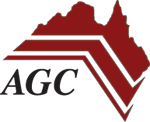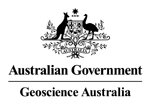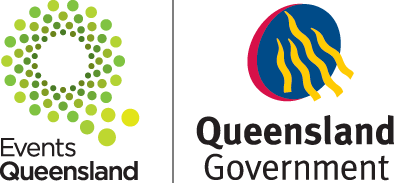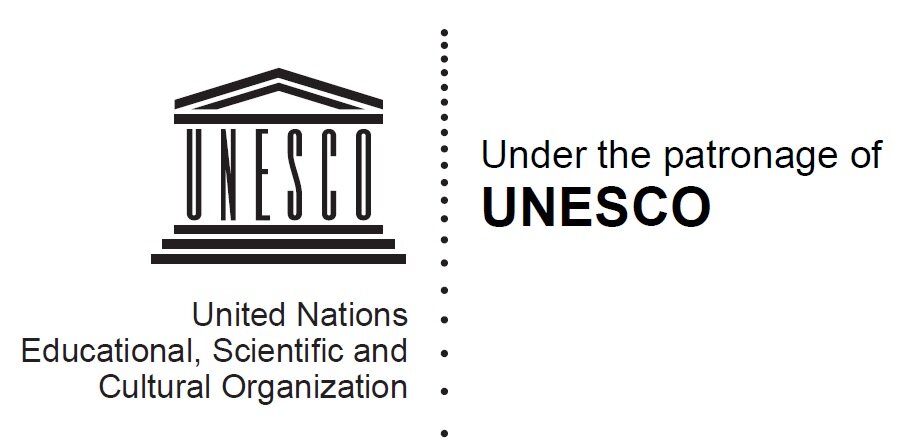Plenary Session 1:
|
 |
Mr XU Shaoshi has been Minister of Land and Resources and Chief Supervisor of State Land of the People’s Republic of China since 2007. He majored in hydrogeology and engineering geology at Changchun College of Geology and holds a Master’s Degree in Economics. From 1980-1993, he held a series of senior positions within China’s Ministry of Geology and Minerals. He then joined the State Council, becoming Deputy Secretary-General in 2000. |
Marcio Luis Silva GODOY (Brazil)
 |
Marcio has a wealth of experience in the mineral industry, having acted in a variety of roles related to mineral exploration, mineral project development, project implementation and operations in several countries, including Brazil, Chile, Zambia, DRC and Suriname. Marcio has joined Vale in 2002 becoming the head of copper operations and copper project development. Since 2010, Marcio holds the title of Head of Global Exploration and Mineral Project Development, being responsible to foster the company growth and mineral and geographical diversification through the development of greenfield mineral projects. In this role, Marcio oversees all of the Company´s greenfield exploration project portfolio, exploration strategy, early stage project development and mineral and exploration technology. Vale develops an aggressive worldwide multi-commodity exploration program, being present in 25 countries. Marcio holds a BSc and a MSc in Geology from Universidade Estadual Paulista (UNESP), São Paulo, Brazil. He currently serves as a director in several boards of mining companies. He is also a member of the board of Vale Foundation, Vale´s arm responsible for the sustainable development initiatives in areas in which Vale is active in Brazil and overseas. |
Steve GORELICK (USA)
 |
Professor Steven Gorelick runs the Global Freshwater Initiative at Stanford University where he is the Cyrus F. Tolman Professor in the Department of Environmental Earth System Science and a Senior Fellow in the Woods Institute for the Environment. One of his major research focus areas is analysis of water-supply sustainability in developing nations, including multi-year projects in Mexico, India, and Cambodia/Vietnam that have evaluated urban-agricultural competition for surface water and groundwater resources. He is an AGU and GSA Fellow, received fellowships from both the Guggenheim and Fulbright Foundations, and produced over 100 publications, three patents, and three books. |
Plenary Session 2:
|
 |
Lord Ron Oxburgh, House of Lords UK Parliament, served as chairman of The Shell Transport and Trading Company until its unification with Royal Dutch Petroleum. He is a member of the House of Lords of the UK Parliament and a graduate of the Universities of Oxford and Princeton. He has taught geology and geophysics at the Universities of Oxford and Cambridge and was a visiting professor at Stanford University, the California Institute of Technology and Cornell University. From 1988 to 1993, Lord Oxburgh was Chief Scientific Adviser to the UK Ministry of Defence and, from 1993 to 2001, Rector of Imperial College, London. He has served as President of the Geological Society of London and of the European Union of Geosciences. He is a member of the Advisory Committee on Science, Technology and Research for Singapore, a Fellow of the Royal Society, an Honorary Fellow of the Royal Academy of Engineering, and a Foreign Member of the Australian Academy of Science. He is currently an advisor on environment and energy to the Government of Singapore, Climate Change Capital and Deutschebank. |
Scott TINKER (USA)
 |
Scott W. Tinker is Director of the Bureau of Economic Geology, the State Geologist of Texas, Director of the Advanced Energy Consortium, a Professor holding the Allday Endowed Chair and acting Associate Dean of Research in the Jackson School of Geosciences at the University of Texas at Austin. Scott spent 17 years in the oil and gas industry prior to coming to UT in 2000. Scott is past President of the American Association of Petroleum Geologists (AAPG), past president of the Association of American State Geologists, and current president of the Gulf Coast Association of Geological Societies. Tinker has been a Distinguished Lecturer for the AAPG and Society of Petroleum Engineers, a Distinguished Ethics Lecturer for the AAPG, and is the current GSA Halbouty Distinguished Lecturer. Tinker is a Fellow of the Geological Society of America, holds appointments on the National Petroleum Council, the Interstate Oil and Gas Compact Commission and several private, professional, and academic advisory boards; and has won best paper awards in two major journals. Tinker’s passion is building bridges between academia, industry and government and towards the end he has given nearly 500 invited and keynote lectures, visited over 45 countries, and most recently produced and is featured in the acclaimed documentary film on global energy, SWITCH. Tinker’s degrees are from the University of Colorado (Ph.D.), the University of Michigan (MS), and Trinity University (BS). |
Sally BENSON (USA)
 |
Professor Sally M. Benson is Director of the Global Climate and Energy Project in the Department of Energy Resources Engineering at Stanford University. She has worked at Lawrence Berkeley National Laboratory in a number of capacities, including Division Director for Earth Sciences, and Deputy Director for Operations. She gained her PhD from the University of California, Berkeley. A ground water hydrologist and reservoir engineer, Prof. Benson investigates the fundamental characteristics of carbon dioxide storage in geologic formations as a means of climate change mitigation and other issues related to energy and the environment, including technologies and energy systems for a low-carbon future. She was a coordinating lead author on the 2005 Intergovernmental Panel on Climate Change (IPCC) Special Report on Carbon Dioxide Capture and Storage and is the author or co-author of over 160 scientific publications. |
Plenary Session 3:
|
 |
Professor Iain Stewart is a geologist and broadcaster who holds a chair in Geoscience Communication at Plymouth University, UK. After presenting several major BBC television series about the planet (Journeys from the centre of the Earth; Journeys into the Ring of Fire; Earth: The Power of the Planet; Earth: The Climate Wars, How Earth Made Us), his most recent programmes explore his own backyard, with an environmental history of Scotland (Making Scotland’s Landscape) and a celebration of the Scottish pioneers of geology (Men of Rock). His latest landmark BBC series examines how plants have helped shape Earth’s history. |
Renato SOLIDUM Jr (Philippines)
| Dr. Renato U. Solidum, Jr. is a geologist and obtained his Ph.D in Earth Science from University of California, San Diego. He is currently the Director of the Philippine Institute of Volcanology and Seismology (PHIVOLCS), the Philippine government organisation mandated to monitor and warn, assess hazards and risk, conduct research and development, and formulate awareness and preparedness plans to events related to volcanoes, earthquakes and tsunami. He leads PHIVOLCS involvement in inter-organisational activities related to disaster risk reduction of the Philippines, including multi-hazards and risk assessment and community preparedness. |
Plenary Session 4:
|
 |
Professor Tim Naish is Director of the Antarctic Research Centre at Victoria University of Wellington and Principal Scientist at the New Zealand Crown Research Institute, GNS Science. He is a paleoclimatologist focussed on reconstructing past global sea-level changes from continental margin geological records. He has participated in 9 expeditions to Antarctica and helped found ANDRILL, an international Antarctic Geological Drilling Program. He was cochief scientist of ANDRILL’s McMurdo Ice Shelf Project which recovered sediment cores documenting the first direct evidence that the West Antarctic Ice Sheet had collapsed the last time the world was 2-3°C warmer, 3-5 million years ago. He is currently a Lead Author on the Intergovernmental Panel of Climate Change’s 5th Assessment Report. |
Will STEFFEN (Australia)
 |
Professor Will Steffen is Executive Director of the ANU Climate Change Institute at the Australian National University (ANU), Canberra, and serves on the Multi-Party Climate Change Committee (MPCCC) and as a Climate Commissioner. He is also Co-Director of the Canberra Urban and Regional Futures (CURF) initiative, a joint venture of ANU and the University of Canberra. From 1998 to mid-2004, Steffen served as Executive Director of the International Geosphere-Biosphere Programme, based in Stockholm, Sweden. His research interests span a broad range within the fields of climate change and Earth System science, with an emphasis on incorporation of human processes in Earth System modelling and analysis; and on sustainability and climate change, with a focus on urban systems. |
Plenary Session 5:
|
 |
Dr Tom Cudahy is the Director of the Western Australian Centre of Excellence for 3D Mineral Mapping. He has over 25 years of research experience with CSIRO in Perth in developing optical remote and proximal technologies for mineral resources exploration and development, especially hyperspectral mineral mapping at visible to thermal infrared wavelengths. Tom has led numerous national and international collaborative research projects and been involved with international science teams, including ASTER and Hyperion. His 2020 vision is a public, web-accessible 3D mineral map of Australia (and beyond) based on a new generation of satellite, airborne, field and drill-core logging hyperspectral technologies. |
Kristine ASCH (Germany)
 |
Dr Kristine Asch, a geologist, heads the Geological Information Systems and Maps unit at the Federal Institute for Geosciences and Natural Resources (BGR). She is Chair of the IUGS Commission of Geoscience Information, leads the Europe Subcommission of the Commission of the Geological Map of the World, and coordinates building the Geoscience Information in Africa (GIRAF) network. Kristine authored the 1:5 Million International Geological Map of Europe and Adjacent Areas. Through her roles in the German Geoscience INSPIRE Expert Group and the EU data specifications team and working group on geology and mineral resources, and related publications, Kristine has been closely associated with the development and dissemination of a new web language for geology, which allows nations to share data with each other and the public. |
Ken GLEDHILL (New Zealand)
 |
Ken Gledhill is the GeoNet Project Director at GNS Science in Wellington, New Zealand. GeoNet is New Zealand’s geological hazards monitor system employing state of the art equipment and telecommunications technology. He is also chair of the governance group for the Pacific Tsunami Warning and Mitigation System (ICG/PTWS). Ken is a scientific project manager, seismologist, scientific instrumentation and telecommunications specialist with more than 30 years’ experience. His research has concentrated on geophysical instrumentation, the field studies of large earthquakes, and the study of the deep structure beneath New Zealand and internationally using the seismic waves generated by earthquakes. |








